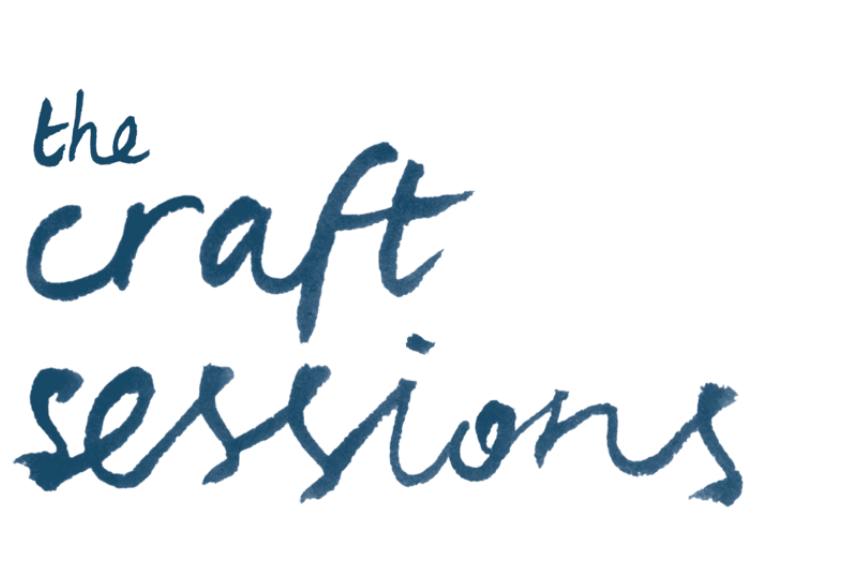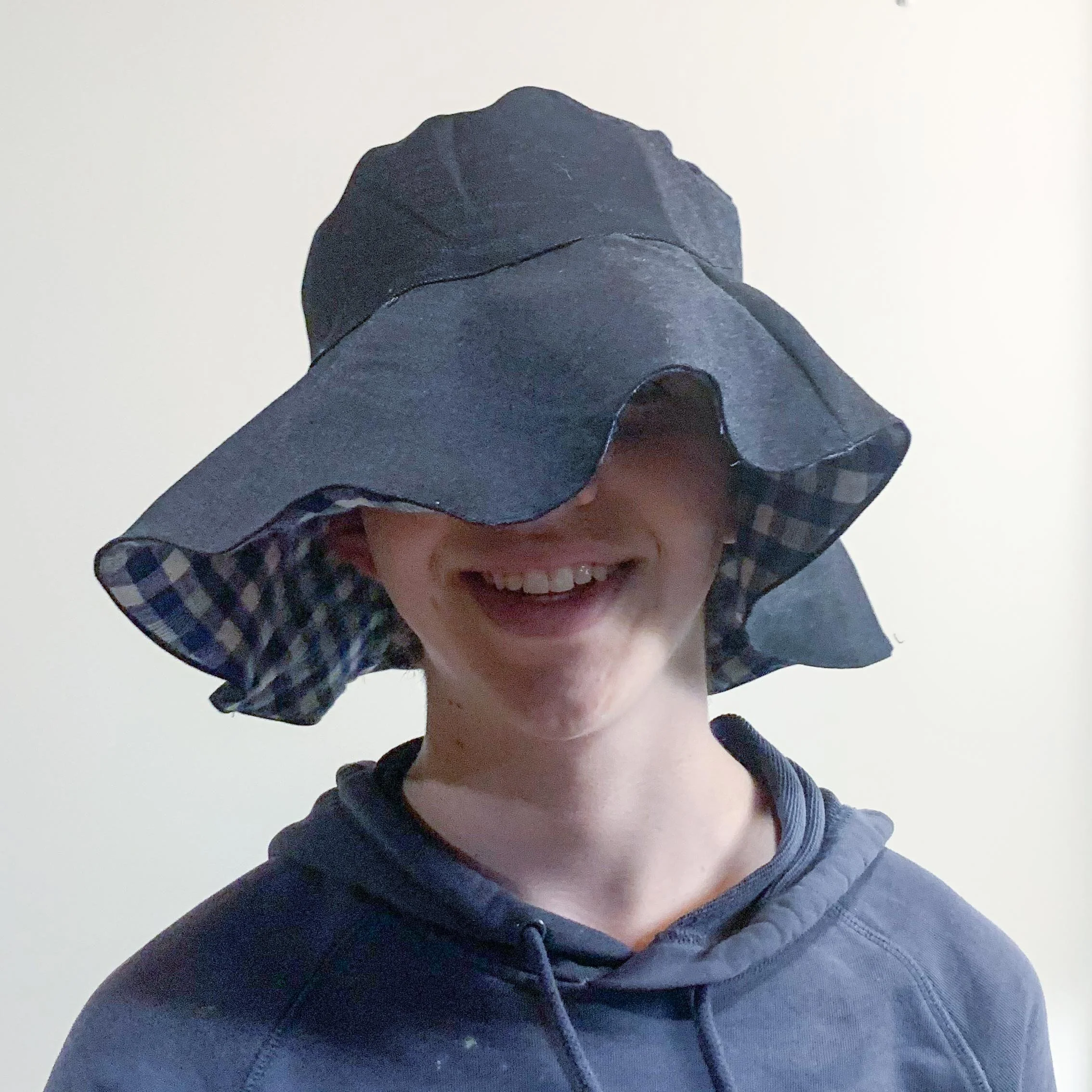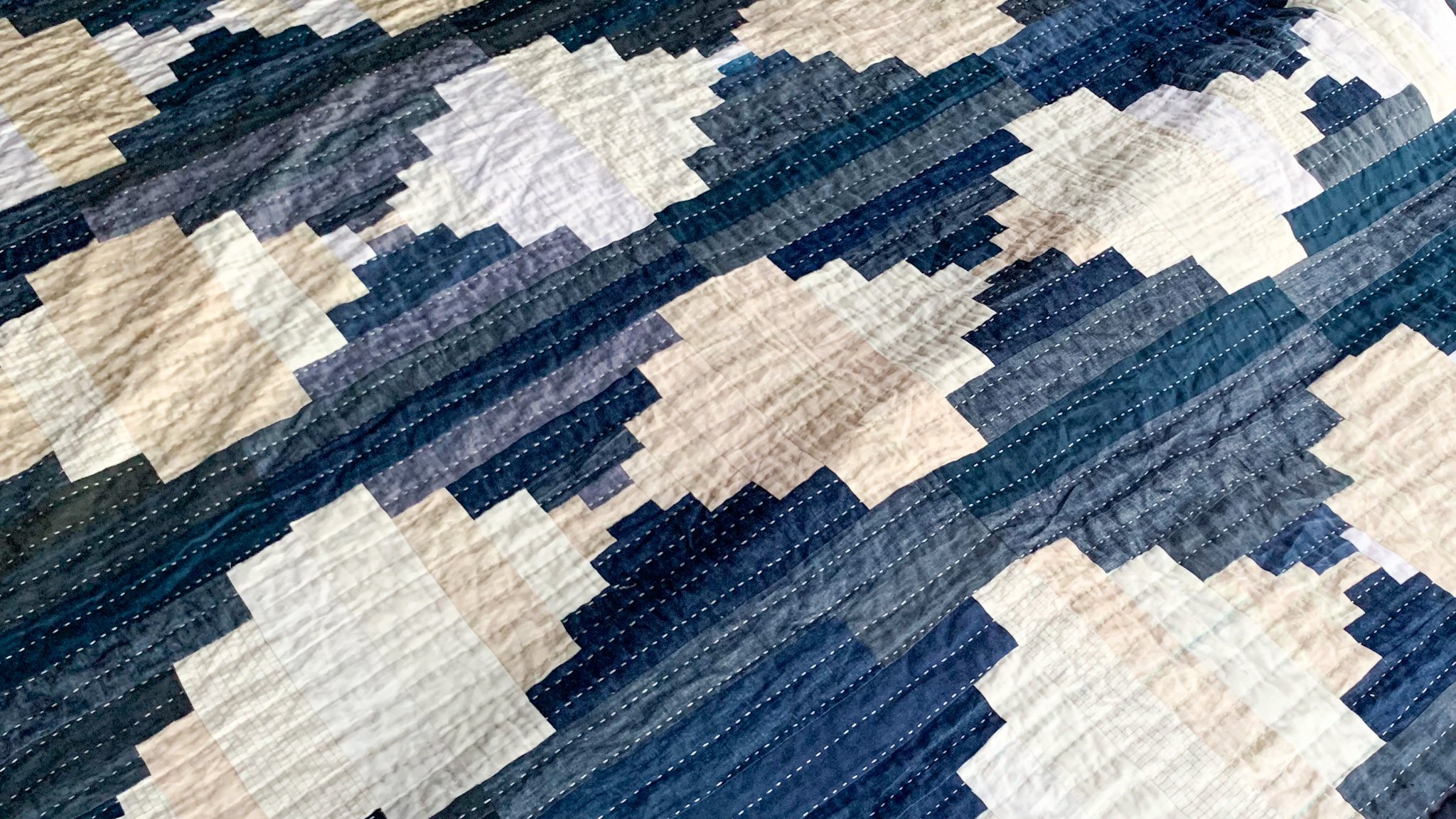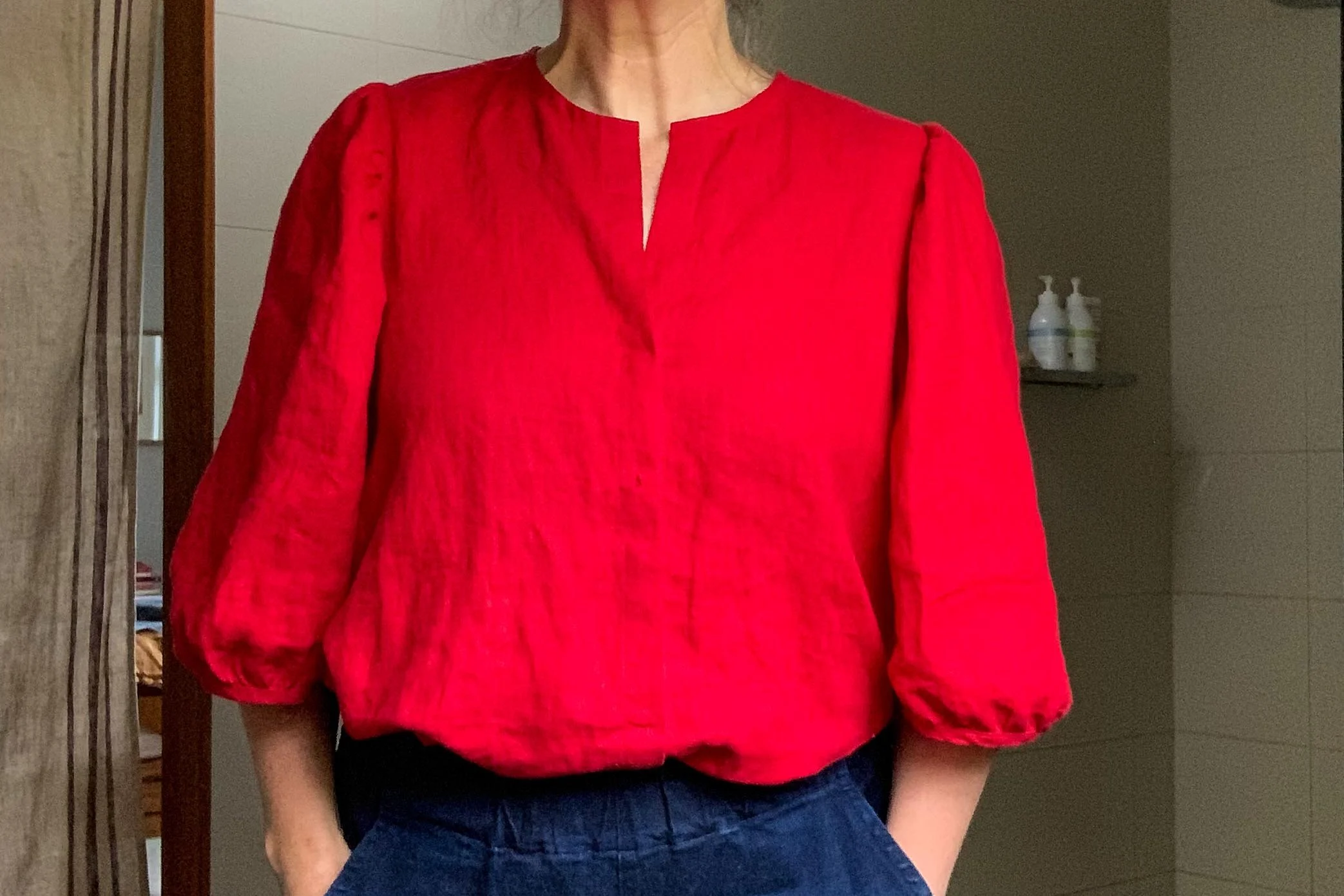So I don’t do resolutions - but I do do tweaks. I look at where I’m at in the new year and make small changes if needed. And this year I have been thinking about #10minofmaking, and what I have learned so far from this idea.
Read MoreOn Growing Our Confidence And How Making Isn't Hard
The wonderful Petra’s dream project - she spoke about her coat at Soul Craft this year.
Hello lovely crafters,
I've been thinking a lot over the last few weeks, about the part confidence plays in making a thing. What is it? How we get it? Where does it comes from? But especially about how sometimes a lack of it stops us from engaging in the type of making we would love to be doing.
So many of us have a dream project that we would love to be doing, that we aren't even starting of, because of the stories we tell ourselves about our own capacity. Often, what is stopping us, is simply the lack of belief that we can. And so we wait…
What are we waiting for? For more skills? To feel ready?
The stunning coat at the top of the post was made by the lovely Petra Wallace - who I interviewed for Soul Craft this year - about making her dream project. I've been lucky enough to witness Petra develop her making practice over many years - and develop her confidence.
As I was editing the interview to get it ready to post the other day, it made me mindful that confidence is something that we build over time, bit by bit, project by project. And that confidence is multifaceted.
To my mind, I think sometimes we believe that we need to learn a bunch of technical skills in order to make the thing we want to make. But actually the process of learning is much more encompassing. Much of our capacity to make something comes down to whether we have, not just technical skills, but also the physical skills we need to manipulate our materials and most importantly the emotional skills of navigating what goes right and wrong in the process.
Editing Petra's presentation clearly highlighted to me the three kinds of confidence we need to grow to make a thing.
We need to grow our;
a.technical skills
b.physical ability
c. emotional intelligence.
Hey! That makes me excited just to write it down.
These individual confidences, which are essentially each a type of skill, can't all be learnt at once. We learn them bit by bit, in context, over time. If we are lucky, some of them we bring to our making from other parts of our life. But some of it we can only learn by engaging with the materials in the making. Engagement is the way.
Ok. So here, it's important to note that we build them within a cultural context that broadly says that learning craft is hard and complicated. Important because our expectations impact both our engagement in the thing and the outcome of that engagement.
My first knitting project was a lace shawl called Birch by Rowan. As I didn't know any knitters, and I didn't know that lace shawls were supposed to be “hard”, I simply knitted it. And yeah it was tricky, and I made many mistakes but I figured it out over time. The version in the photo below is Mark III, taht I made for a friend for her wedding. And if you have sharp eyes and can read your knitting you can see that I'm still making mistakes. One of those leaves is not like the others…. :)
But here is what I'm wondering. Maybe if I had been told it was really difficult I wouldn't have even tried?
It's worth thinking about the stories we have about what we are capable of - and of what it takes to make the thing we want to make. Because maybe we are making up how hard it actually is.
We have learnt so many skills in our lifetime. Skills much harder than wrapping yarn around sticks. We've learnt to walk and talk and ride bikes and drive cars and type and tie shoelaces. Each of these skills is much harder than learning to make the thing we want to make.
Obviously the only exception being the shoelaces as that is essentially what knitting is. Pulling loops of yarn through another loop.
Last week I got to watch the kid in the photo, making a present for his baby sister's birthday. He is 15, and left his present buying till the last minute - and as we were in lockdown last-minute-purchasing wasn't really possible.
And so, he said to me the day before “I'm just gunna make her something. Can you print me out a hat pattern?”.
Now he hasn't touched a machine in 5 years - since the last time he made his sisters skirts for Xmas. And I was a bit hesitant, as I really didn't have time to contribute to the process. But he was determined and all “just print the pattern mama! I've got this.”
He asked a few questions like “hey, what is topstitching?” but other than that he did it by himself. By himself. Skirt making to hat making with a five year gap. Skilling up as he stitched. Engagement is the way?
And he made her a hat. A hat he is proud of. You can see the hat below - the lighting is terrible as he didn't finishing making it till 12.15am. Grr. But anyhoo…
Part of his confidence is, of course, that he is 15. But I hope that most of his confidence is drawn from the fact that his unique cultural context is different to most of us.
He lives in a household where we haven't ever distinguished between the difficulty of the skills you need to make to make a hat AND other skills he has learnt like brushing his teeth or holding a pencil or using a dishwasher or shoelace doing-up. And so he doesn't believe that making is hard.
Years back I wrote a post about how “I think we have lost the belief that we can make. And that all making with our hands is learnable.”
And I stand by this.
So yes confidence - technical, physical and emotional - is something we build over time, step by step.
But I also wonder if our cultural stories about how hard things are aren't sometimes tripping us up. Even those of us that are makers are impacted by a culture that says that making things is really difficult.
Maybe the 15year old wasn't tripped up because he doesn't know about them. And maybe if we thought about what our stories actually are, we could get better at side-stepping them too.
Anyhoo. Just some thoughts. Hope you're getting your 10 minutes (or more) of making today. x
Felicia
Make Better, Make Less
A birthday top that turned out exactly as I had hoped and planned! Not all makes are so lucky…
Makers like us want to make in a way where we aren’t making our slow fashion = fast fashion. We want to make in a way that is intentional and conscious and not overly excessive. But figuring out what that looks like can be incredibly tricky.
Each of us have to find a way to make that is inline with our values in order for our making practice to be truly congruent. Which we want cause congruency makes us feel good, and being out of alignment makes us feel wonky in spirit. So today, I want to propose a more generous way of thinking about restriction around what we make, because language matters. The language we use establishes the context of our thinking. If we feel restricted our urge is rebel - or mine is anyway :). Tell me to make less and all I want to do is make more. But that want is momentary and overcomeable with some thought and intention.
Read MoreMaking as Experience And Graft
“I care very much about taking all the magic away, because you keep attributing your work to other forces and all that can do is disempower you. Really I feel that strongly. I can do what I do, to the extent that I can do it, because of accumulated experience and graft. Mmm, and it’s very freeing.” quote from Tim Minchin….. and my thoughts about it!
Read MoreRedefining Success in Craft
This little sweater was a failure :) as I was never quite happy with how well the colours sat together - but I progressed in my knowledge of my craft and I grew in patience.
My favourite part of writing this blog, and sharing my work via instagram, has been the learning and the growth that has come from being part of this community. And one of my favourite learnings has been coming to better understand our cultural relationship to failure. Watching it play out in posts where we talk about mistakes and we talk about failures, how we think of them and relate to them.
We seem to see failure, or rather we seem to feel failure, not just as a project that didn’t meet our goals, but rather as some kind of direct reflection of who we are as people. Many of us take failure very very personally.
Read More









